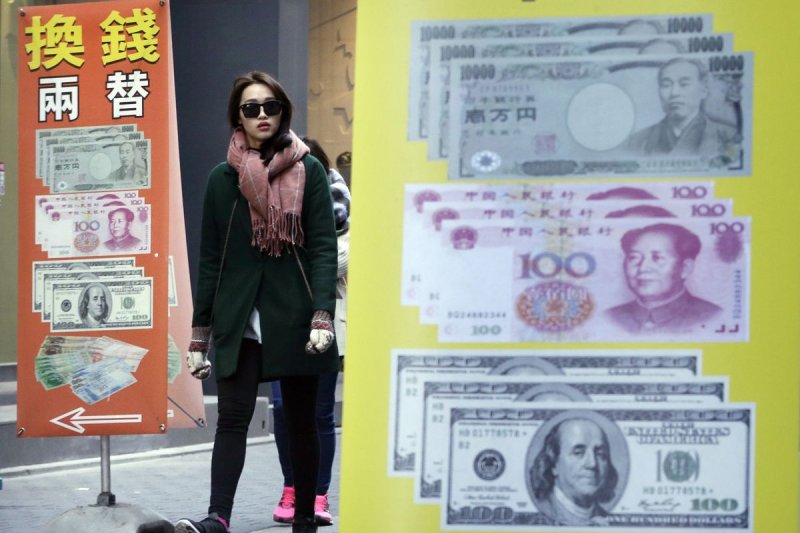- California Assembly OKs highest minimum wage in nation
- S. Korea unveils first graphic cigarette warnings
- US joins with South Korea, Japan in bid to deter North Korea
- LPGA golfer Chun In-gee finally back in action
- S. Korea won’t be top seed in final World Cup qualification round
- US men’s soccer misses 2nd straight Olympics
- US back on track in qualifying with 4-0 win over Guatemala
- High-intensity workout injuries spawn cottage industry
- CDC expands range of Zika mosquitoes into parts of Northeast
- Who knew? ‘The Walking Dead’ is helping families connect
S. Korea cuts interest rate to record low

A woman passes by signs of foreign exchange in Seoul, South Korea, Thursday, March 12, 2015. South Korea unexpectedly lowered its benchmark interest rate Thursday to a record low of 1.75 percent, joining central banks from Europe to India in efforts to revitalize sluggish economic growth.(AP Photo/Ahn Young-joon)
SEOUL, South Korea (AP) — South Korea unexpectedly lowered its benchmark interest rate Thursday to a record low of 1.75 percent, joining central banks from Europe to India in efforts to revitalize sluggish economic growth.
The quarter percentage point cut was the first interest rate cut by the Bank of Korea in five months. Analysts had predicted that the central bank would stand pat amid concerns that lower borrowing costs could accelerate growth in household debt.
But the central bank said South Korea’s economic growth and inflation this year will be lower than expected. There are also concerns in financial markets and at the finance ministry that South Korea could suffer falling prices, also known as deflation, which can cause prolonged economic stagnation as people and companies delay investment and spending.
“We took into consideration that it was necessary to revive recovery momentum,” BOK Governor Lee Ju-yeol told a press conference. He repeated his previous view that South Korea’s economy has not entered deflation.
In January, the central bank revised its 2015 growth outlook to 3.4 percent from 3.9 percent and downgraded its inflation projection to 1.9 percent from 2.4 percent. The bank will release revised economic forecasts in April.
Japan has grappled with a deflationary slump for years and is carrying out an unprecedented stimulus effort to create inflation. Europe is on the verge of deflation and has launched its own massive program to boost the money supply. Central banks in countries such as Australia and India have cut interest rates recently to boost sluggish growth.
The U.S. Federal Reserve, meanwhile, is heading in the opposite direction. It is expected to raise interest rates this year as the U.S. economic recovery gains momentum.
Exports, South Korea’s key growth driver, dropped 3 percent last month from a year earlier. Industrial production slipped 4 percent in January from a month earlier while capital expenditure fell 7 percent in the same month.
The rate cut comes after South Korea’s consumer prices rose less than 1 percent for the last three months despite government’s efforts to boost consumption and investment. Consumer prices edged up just 0.5 percent in February, marking the lowest inflation rate in years.
Earlier this week, South Korea’s finance ministry expressed concerns about Asia’s fourth-largest economy falling into deflation, citing weak production, consumption, investment and exports. The finance minister pledged to introduce measures to encourage spending. Some analysts saw the remark as the government giving a green light to the central bank to cut rates.
The central bank lowered the benchmark interest rate two times last year.















